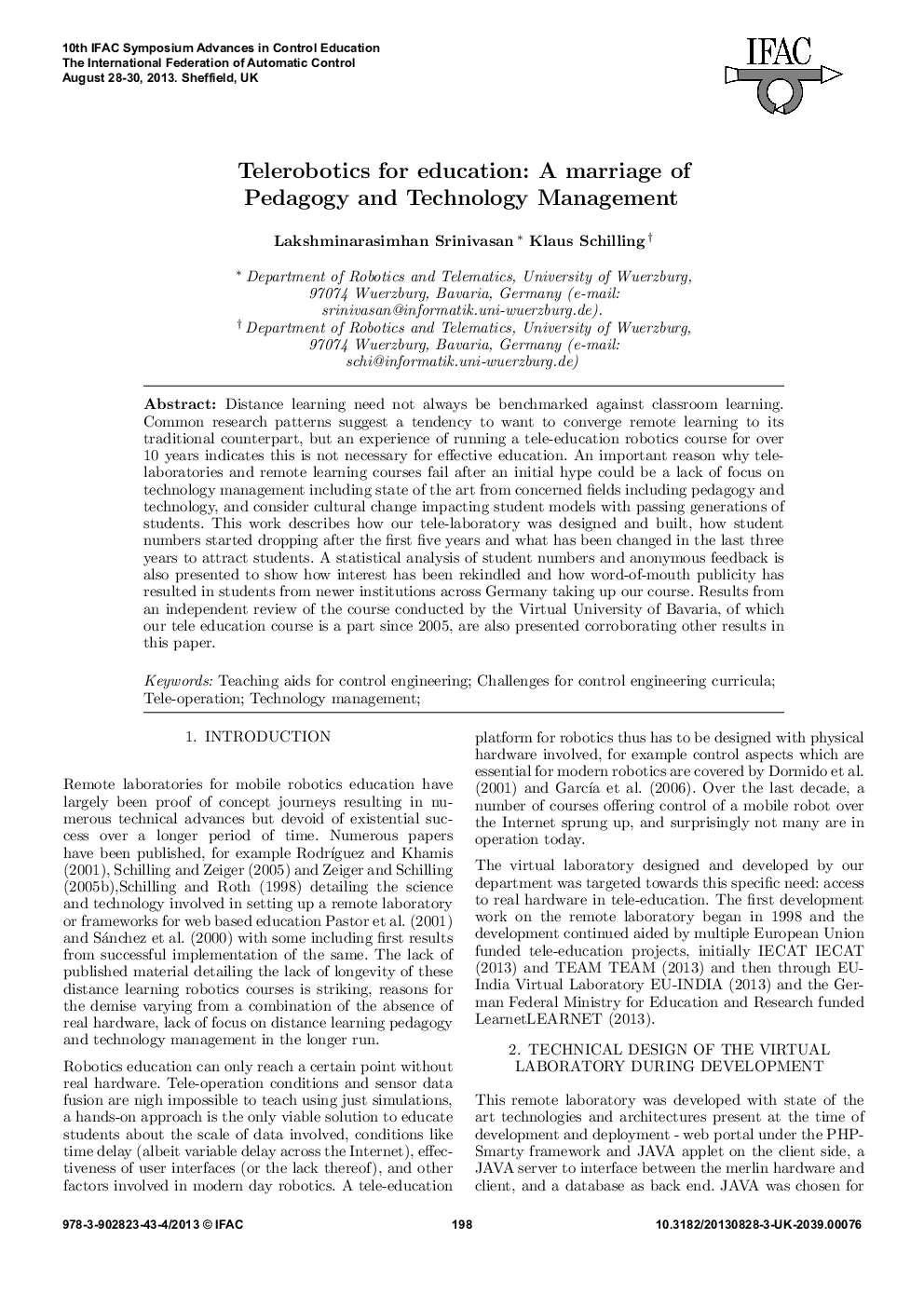| Article ID | Journal | Published Year | Pages | File Type |
|---|---|---|---|---|
| 709269 | IFAC Proceedings Volumes | 2013 | 5 Pages |
Distance learning need not always be benchmarked against classroom learning. Common research patterns suggest a tendency to want to converge remote learning to its traditional counterpart, but an experience of running a tele-education robotics course for over 10 years indicates this is not necessary for effective education. An important reason why tele-laboratories and remote learning courses fail after an initial hype could be a lack of focus on technology management including state of the art from concerned fields including pedagogy and technology, and consider cultural change impacting student models with passing generations of students. This work describes how our tele-laboratory was designed and built, how student numbers started dropping after the first five years and what has been changed in the last three years to attract students. A statistical analysis of student numbers and anonymous feedback is also presented to show how interest has been rekindled and how word-of-mouth publicity has resulted in students from newer institutions across Germany taking up our course. Results from an independent review of the course conducted by the Virtual University of Bavaria, of which our tele education course is a part since 2005, are also presented corroborating other results in this paper.
